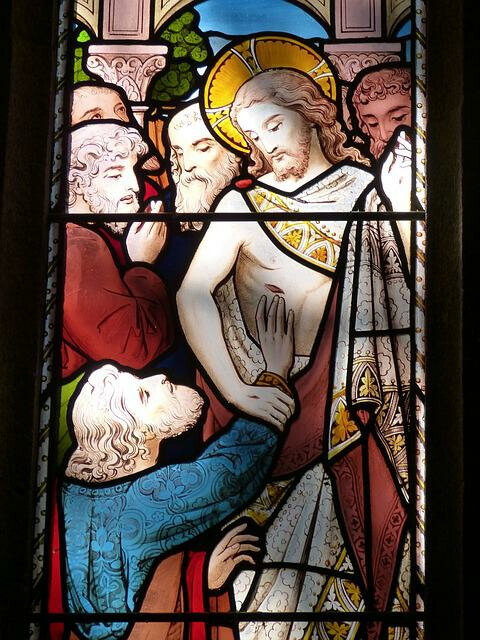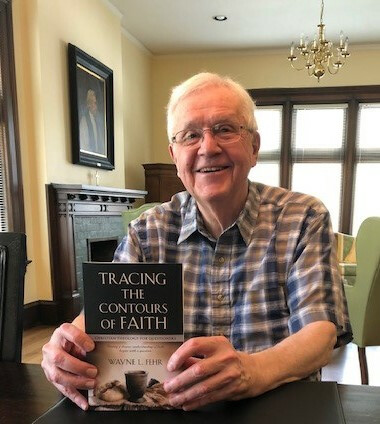
Dear Theologian,
Who is God? What is God?
Seeking Wisdom
Dear Seeker,
You don’t waste words, do you? These are questions that can never be answered adequately. But it is helpful to have them posed so simply and directly—almost as a child might ask them.
When confronted so directly and inescapably, the believer might well feel at a loss to answer. How can one put into words what is infinitely greater than the human mind? But we try. Since you have asked a theologian (not a mystic or a poet), you are going to get somewhat philosophical, rational answers. But there are other ways of responding to your questions—in sacred music, inspired songs, works of art, poems, and perhaps most convincingly, in the lives of holy men and women.
All speaking about God ought to be done with great humility, modesty and reverence. But this is not always the case. We Church people use the word “God” so often and so familiarly that we are in some danger of becoming glib and superficial in our “God-talk.” We can lose the sense of awesome Mystery that must always accompany any serious speech about God.
We sense this Mystery at certain moments of heightened awareness. Peter Gomes speaks of “those close encounters of the transcendent kind that suggest relationships beyond the power of our experience to reckon, but which we know in some fundamental way to be true.” [1] Most of us have had moments like that, when we were thrilled, shocked, or awed by an experience that drew us beyond the merely rational—the splendor of a sunset, the grandeur of mountains, the birth of a child, a Beethoven symphony. The list could be prolonged.
But WHAT is God? An old axiom says, “God is always greater” (Deus semper major)—that is, greater than anything we can imagine, conceive, or express. God cannot be put into a category of things, because God is not one thing among many. God is the “ground of being” for all that is. So we are unable to answer in any satisfactory way the question, “What is God?” None of our answers to the what-question can possibly fit God.
Nevertheless, we have many “names” for God. The Bible is full of them (rock, fortress, shade from the heat, living water, blazing fire, shield, mother, father, etc.). These images function as metaphors, trying to say indirectly and poetically what cannot be said literally and directly. No one of these metaphors is adequate to the reality toward which they point. That’s why there are so many of them. They are suggestive, but cannot be taken literally, and we cannot know to what extent each of them really “fits.” It’s as if the human mind is continually groping after more ways of referring to the nameless and unspeakable Mystery that underlies and fills all things.
WHO is God? This question seems to presuppose that God is personal. “Who” is a word that directs us toward a reality that we could properly address with the word “Thou” (“You”). And Christian believers do dare to address God with this personal pronoun. In fact, they even go further, following the teaching and example of Jesus, and dare to say “Father!”
But we are not to imagine God as a limited person in the way that each human being is. This would be the same kind of mistake as taking literally one of the “names” or metaphors for God. “God is always greater.” Still and all, if one asks “Who is God?” one is looking for a reality that is at least not “sub-personal,” though it may be “trans-personal.”
The “who-ness” of God is discovered only by relating to God personally in prayer. When we try to speak to God, it feels right to say “Thou” or “You.” In the attitude of praying, we enter into a personal relationship with “someone,” not “some thing.”
On the other hand, when we try to speak about God in personal terms, we fumble and fall into paradoxical language. We are embarrassed by the need to refer to God, then, as either “Him” or “Her,” even though we don’t really think that gender is relevant in speaking about God. Our little third-person pronouns are rightly felt to be utterly inadequate when we use them to refer to the One whom we know authentically only in an “I-Thou” relationship.
Whether, then, we try to say “Who” God is or “What” God is, we are left finally in reverent silence, to feel the unutterable Mystery. This is a good and blessed point to reach. But we human beings are reluctant to stay very long in that state of unknowing and wonder.
Although I may not have answered your questions in a satisfactory way, I hope that these reflections may help you to continue to live with those questions.
Faithfully,
The Theologian
[1] Peter Gomes, The Good Book: Reading the Bible with Mind and Heart (New York: William Morrow & Company, 1996), p. 214.



